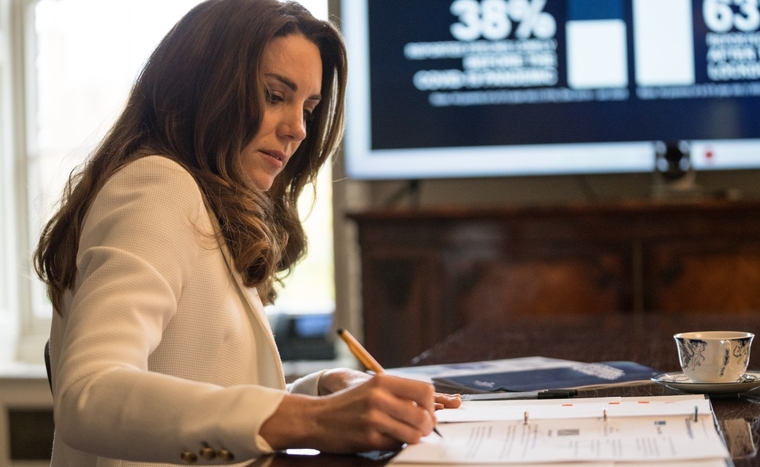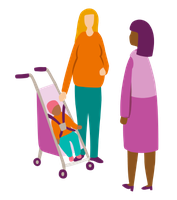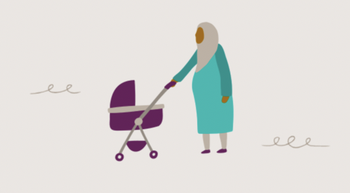Posted By: Amy Tubb
27th November 2020
3 minute read

The early years are not simply about how we raise our children. They are in fact about how we raise the next generation of adults.
The Princess of Wales, MMHA Royal Patron
The Duchess of Cambridge has unveiled the findings of the biggest ever UK study on the early years. The research, commissioned by The Royal Foundation of The Duke and Duchess of Cambridge and conducted by Ipsos MORI, reveals what the UK thinks about the early years and explores how COVID-19 has impacted the perceptions of parents and carers of the under-fives.
In January, Her Royal Highness asked the public for their views through the ‘5 Big Questions on the Under Fives’ survey. The research, published today, includes the findings of the 5 Big Questions as well as further qualitative and ethnographic research, a nationally representative survey conducted before the pandemic, and a survey on the impact of COVID-19 on families.

of parents mentioned taking the time to look after their own wellbeing when asked how they had prepared for the arrival of their baby

of people see parental mental health and wellbeing as being critical to a child’s development

of all parents expect the pandemic to have a negative impact on their long-term mental wellbeing
According to the research, an overwhelming majority (90%) of people see parental mental health and wellbeing as being critical to a child’s development but, in reality, everyday life means that people do very little to prioritise themselves. Only 10% of parents mentioned taking the time to look after their own wellbeing when asked how they had prepared for the arrival of their baby.
Additionally, 70% of parents said they felt judged by others and among these parents, nearly half feel this negatively impacts their mental health.
Alarmingly, over a third (37%) think that the COVID-19 pandemic will have a negative impact on their long-term mental health. Women (40%) and those who have experienced financial difficulties during the pandemic (43%) are particularly likely to report a negative impact.
Parental loneliness has also dramatically increased during the pandemic, from 38% before to 63%, as parents have been cut off from friends and family. The increase in loneliness for parents is more apparent in the most deprived areas. These parents are more than twice as likely as those living in the least deprived areas to say they feel lonely often or always (13% compared with 5%). Compounding this, it seems there has been a rise in the proportion of parents who feel uncomfortable seeking help for how they are feeling, from 18% before the pandemic to 34% during it.
Across the UK, communities have united to meet the challenges of COVID-19 and 40% of parents felt that community support has grown this year. However, parents in the most deprived areas are less likely to have experienced this increased support (33%) than elsewhere.
These insights highlight clearly that parents and carers need more support and advice to ensure good mental health and wellbeing in the perinatal period and beyond.
“A heartfelt thank you to the Duchess for her unwavering determination in spear-heading this important work. These findings help raise the alarm as to how COVID-19 is impacting the UK’s parents – something the Maternal Mental Health Alliance is committed to shining a bright spotlight on.
“It is right we ensure parents are supported and know where to go for that support. In turn, this report shows how critical parents are to their children. For all of us who care deeply about the development of the under-fives, we must also care about the wellbeing of their parents and carers. The two are intertwined.”
Next year, The Duchess will announce ambitious plans to help elevate the importance of early childhood.